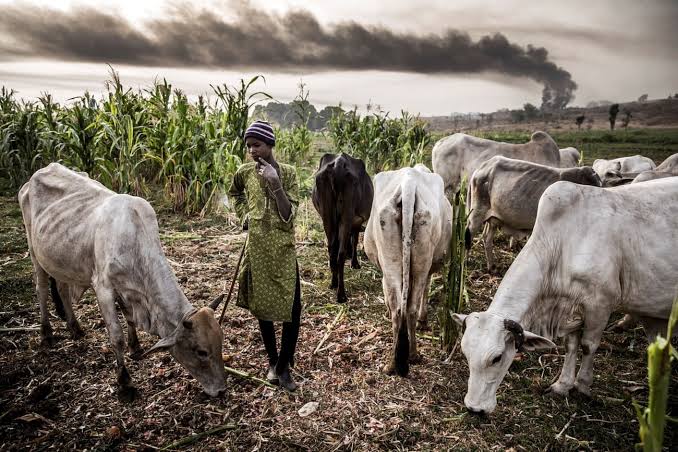Guinea cracks down on stray livestock to curb farmer-herder conflicts during growing season

Guinea’s Ministry of Agriculture and Livestock has announced a nationwide ban on stray livestock during the critical agricultural season, aiming to prevent crop damage and reduce violent tensions between farmers and herders.
In a statement released Friday evening, the ministry cited the country’s Pastoral Code, which mandates strict livestock supervision during farming periods.
Minister Félix Lamah’s department has made it clear: all animals must be guarded and kept off agricultural land from the onset of fieldwork through to the harvest.
“It is now prohibited for any animal to wander during this sensitive period,” the ministry declared, referencing the mounting disputes caused by unmonitored grazing that frequently destroy crops and trigger deadly confrontations in rural communities.
Regional and local authorities, working in tandem with the National Chamber of Agriculture and the Livestock and Meat Federation, have been tasked with ensuring the strict application of this measure.
The ministry emphasized that offenders will face legal consequences: “Anyone who contravenes this press release will be subject to the sanctions provided for by law for this purpose.”
The move comes amid growing national concern over recurring land disputes between cultivators and pastoralists, especially in Guinea’s interior, where competition over shrinking arable land and grazing zones has intensified.
By enforcing animal control during the planting and harvesting season, the government hopes to mitigate tensions and ensure food security in a country where agriculture remains the main livelihood for the majority of the population.
The ban is part of a broader strategy to modernize rural land management and promote peaceful coexistence between farming and herding communities—a goal that has eluded many West African nations grappling with similar issues.
About The Author
dailymailafric
I am an avid African news observer, and an active member of Daily Mail Africa.
I’m Passionate about staying informed on diverse topics across the continent,
I actively contribute to publishing on political, economic and cultural developments in Africa.



